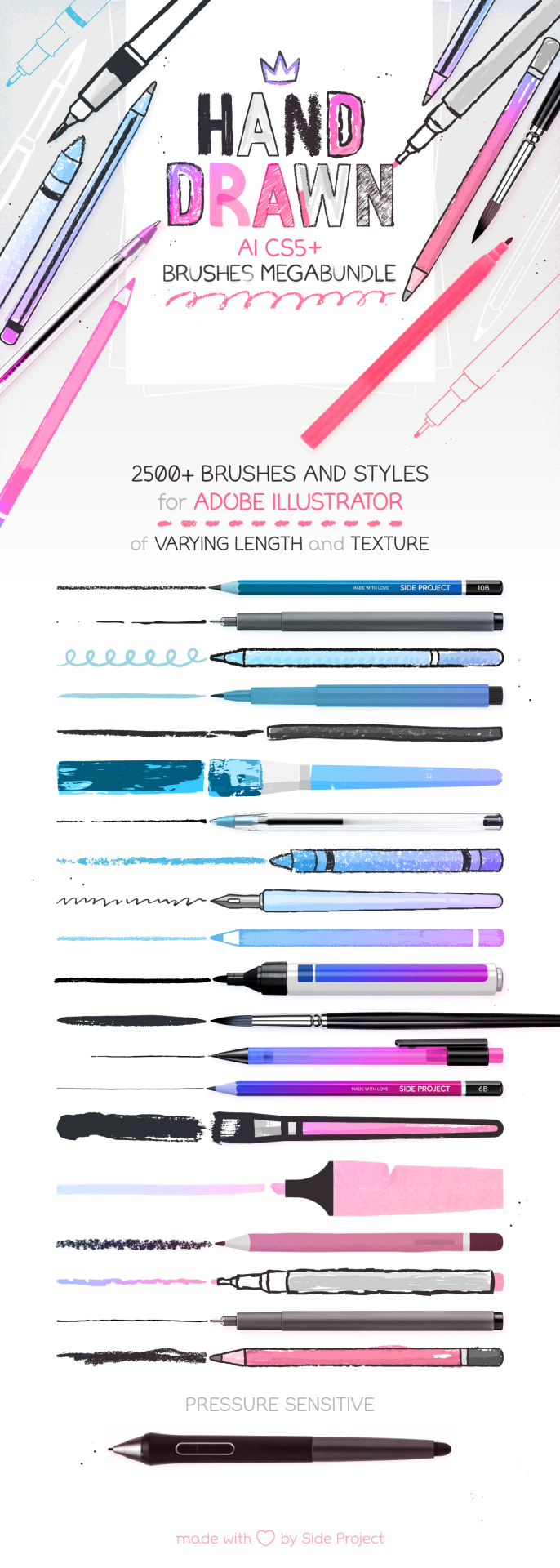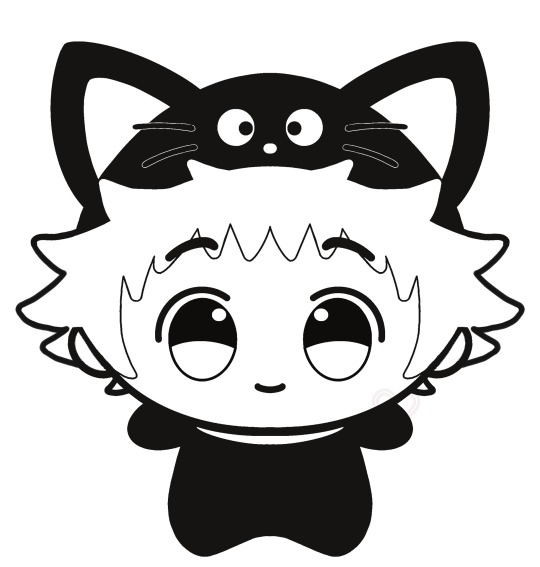#vector bundle
Explore tagged Tumblr posts
Text
the cotangent bundle (differential forms) is the feminine side of calculus-on-manifolds; the tangent bundle (vector-fields) is the masculine side.
Shing-Shen Chern, via Richard Montgomery
#Shing-Shen Chern#Richard Montgomery#Stephanie Frank Singer#differential forms#cotangent#bundles#vector bundle#tangent bundle#masculine#feminine#mathematics#differential geometry#physics#mechanics#maths#math#calculus#manifolds
35 notes
·
View notes
Text

Vector Sportswear Mockups Bundle is a comprehensive collection of high-quality, customizable mockups designed for sports and streetwear enthusiasts.
Perfect for showcasing designs on a variety of garments, this bundle includes everything from basketball jerseys to bomber jackets. Whether you’re creating for fashion presentations, online stores, or personal projects, this bundle provides a versatile and detailed set of mockups for your creative needs.
List of Garment Mockups:
Baseball Jersey
Baseball Cap
Basketball Jersey
Basketball Shorts
Bucket Hat
Football Jersey
Hockey Jersey
Joggers
Vest
Hoodie
and more
Key Features:
• Fully customizable vector files for easy design editing and scaling.
• Wide range of sportswear items including jerseys, jackets, pants, and accessories.
• High-resolution mockups ensuring crisp and clear visual presentations.
• Organized layers for quick modifications and adjustments.
DOWNLOAD NOW
#Sportswear mockups#vector bundle#apparel mockups#clothing templates#athletic wear#editable mockups#mockup bundle#vector t-shirts#custom sportswear#uniform mockups#jersey templates#vector apparel#sublimation mockups#hoodie vector#leggings mockups#fitness clothing#soccer jersey#basketball jersey#running gear#outfit mockups#activewear mockups#PSD sportswear#sports bra#gym wear#training wear#shorts mockups#mockup files#performance wear#compression wear#cycling jersey
1 note
·
View note
Text
Something about maths that'll never not amaze me is how sometimes you'll read a certain topic and it'll be kinda out of reach, like you kinda get the idea but the details go over your head. But then a few months later you'll come back to it and somehow it makes so much more sense. Maybe it's cause you've realised something that makes it click or sometimes you'll have learnt other things and it'll put it in a new perspective. And it's honestly one of the best feelings
#this happened to me today with vector bundles#like I got the idea but actually using local trivialisations to prove stuff was proving tricky for me#but then today I revisited it because I'm at the point in my report where I'd like to write about them#and it makes so much more sense now!#I was able to prove all the stuff I needed and I feel much more comfortable with them now#maths posting#lipshits posts#mathblr#maths#mathematics#math
296 notes
·
View notes
Text
I love that so very much of mathematics can be described as upgrading linear algebra in various ways.
47 notes
·
View notes
Text
So say you have the set of all lines in a plane through some point p, and you have a different line k not through that point, then all but one of the lines (the parallel one) through p intersects k in a unique point. And if you're in the projective plane, then even the parallel line will intersect k in a point at infinity. But, if you cycle through all the lines in such a way that the intersection point 'travels around' k once, then the lines through p will have 'flipped around' only half a turn. So what that comes down to is that the line bundle over the real projective line is an open Möbius strip.
43 notes
·
View notes
Text
Dear My Sims tumblr.
I just made a revelation that hit me like a truck.


#idk maybe they look alike#my sims cozy bundle#my sims#my sims kingdom#vic vector#my sims agents#my sims sky heros#my sims wii#ea games#2010 nostalgia#moist critikal#dc penguin
31 notes
·
View notes
Text
Vector Icons Bundle
Vector Icons Bundle: Simplify and Elevate Your Designs. https://plixgo.com/items/vector-icons-bundle/1066

#artists on tumblr#anya mouthwashing#batman#cats of tumblr#bucktommy#911 abc#agatha all along#agatha harkness#dan and phil#captain curly#Vector Icons BundleVector Icons Bundle: Simplify and Elevate Your Designs#Vector Icons Bundle
1 note
·
View note
Text
Numblrs, You probably told me already but please tell me (again?) what your field in math is.
Like I studied analysis on manifolds.
0 notes
Text
Watercolor 4th Of July Skeleton Clipart Bundle
#Watercolor 4th Of July Skeleton Clipart Bundle#tshirt#graphic#design#graphicdesign#vector#clipart#4thofjuly#usa#july#sublimation#memorial#national#government#screenprinting#product design#graphic design
0 notes
Text

@whale-in-that-case YOU ACTIVATED MY TRAP CARD I LOVE LINEAR ALGEBRA
i could write an actual book about linear algebra so instead ill let you choose which chapter infodump i should give
free module endomorphisms (i.e. matrices except they dont have to be over a field)
cayley-hamilton theorem and standard forms of matrices (eigendecomposition, and when that doesnt work, and what to do then)
random matrices (the entries are randomly distributed, what do the eigenvalues look like)
linear analysis (infinite dimensional linear algebra, their applications in advanced theoretical mathematics)
One thing about me is I infodump about math subjects on request
#love love LOVE linear algebra#currently im doing a course on operator algebras#and reading about vector bundles#theyre really cool but im not gonna give them as an option since i barely understand them myself rn
238 notes
·
View notes
Text
50 Free Cyber Security and Threats SVG, PNG Vector Icons.

50 Free Cyber Security and Threats colored SVG, PNG icons. Contains cyber attacks, hacker threats, spyware, firewall, secure network, phishing, smartphone, browser malware, computer security, server, internet connection, modem, fingerprint icons.
Download Free Icons
#free icons#free graphics#icon set#icons#png icons#svg icons#freebie#freebies#design#free#vector icons#free svg#svg bundle#cricut#svg files#svg design
1 note
·
View note
Text

2550+ brushes and styles for Adobe Illustrator.
Here is a comprehensive bundle of brushes and styles for Adobe Illustrator that will revolutionize your creative workflow. Muy barato! Such fun!
Check them out!
And if you like them, tell a friend ♡ Side Project
#illustrator brushes#adobe illustrator brushes#adobe illustrator#vector brushes#digital brushes#brush pack#hand drawn brushes#side project#hand drawn#brushes bundle
1 note
·
View note
Text

#illustration#vector illustration#people#bundle#elevation#architecture#plan#building#peoples#etsy#estyshop#handmade#art#supportsmallbusiness#etsyshop#etsyseller#etsysellersofinstagram#smallbusiness#shopsmall#etsyfinds#etsystore#homedecor#love#jewelry#shoplocal#vintage#etsyuk#handmadejewelry#etsyhandmade#fashion
0 notes
Text
Most modern criticism agrees, audiences have a lot of interpretive say. So why do people still talk about media like it's being inflicted on them? Sink your teeth into the difficult films No Country for Old Men and Nosferatu and learn to get your agency back as an audience.
Art, any art, has its subject, and then it has what it thinks about that subject, but "what it thinks" doesn't sit in the art's brain--it hasn't got one, after all--but our brains, the audience's. "What it thinks" is convenient shorthand, really, for a whole relationship, between the artwork itself, the creators and what motivated its creation, the audience and what motivates their reception, and the whole context they all find themselves in. But the text also has qualities, relatively objective contents, and those contents restrict the possibility space of "what it thinks". It would be rude to imagine a bunch of scenes in a novel that never happened and claim the original text says something based on them; we can't put words in art's mouth--it hasn't got one, after all. We do speak for a text, though, and a text speaks for us. We have agency. Older forms of interpretation viewed art as a series of objective authorial intents bundled into a message beamed into our skulls, but most modern interpretive theories agree, more or less, that the audience puts work into understanding. Somehow, the way we talk about art in broader culture, particularly online, hasn't caught up. That shorthand gets taken at face value, as though the message of art (or advertisements, news articles, press releases, scientific studies, press secretary statements...) is obvious, requiring no engagement from us. I've had people scoff and say I'm misusing language when I apply the word "literacy" to this idea. Maybe that's comforting. Having agency means taking responsibility, sometimes responsibility for having a bad time, or for just being wrong. You ever come out of a movie and turn to the people you're with and say, "hey so what was that... about?" At that moment, you might find out you're alone with your interpretation--that you effectively watched a different movie from everyone else! With all the fearsome experiences art offers, and all its attendant social anxiety, why not wrestle some control back by reinterpreting yourself as a victim of art's impositions? I don't think that feeling of control lasts, though. If anything, in the long term it makes art seem like a contagion vector, full of potentially dirty feelings and memes. Media "literacy" partly just means engaging art confidently, instead of feeling like art's being imposed on you. To feel that kind of confidence, though, takes practice, and it's a hard skill to teach, at least if what you're actually testing for is a set of "objective" repeatable metrics. A lot of English classes seem to teach a straightforward "x means y" relationship between symbols or metaphors and their meaning. In response to that kind of disempowering rote formula approach, some people reassert their agency by just... pretending nothing means anything, which feels defiant and powerful, but cuts down everything they can say about art to "Yes!" and "No!" What can this kind of audience do when a work puts two characters in contention, has them spell out a core worldview disagreement, and offers a question: who is right? They can only fall back on reliable common sense (you know, all the unexamined stuff they've absorbed from culture and the people around them, or just their gut emotional responses), arriving at what they believe is the obvious only answer. Too bad, because one of the best ways to train your interpretive agency muscles is looking at exactly those moments of character disagreement. Like, take a look at Anton Chigurh and Carla Jean Moss in No Country For Old Men, maybe, sure. It's a popular movie, a great, iconic scene, and fun to talk about, so let's take a look. At the end of the movie, Anton Chigurh, philosopher-hitman, is going to kill this basically innocent woman; it sucks, and we all hate it, right? I guess it's a bit more than a character disagreement. But it is a disagreement in the sense that they're gonna have a conversation before Chigurh and Carla Jean go to their respective fates, and that conversation is pivotal to the question of what the movie is "about".
Read More
174 notes
·
View notes
Text


I… I might’ve made things…




What if I wanna make things for myself 👉👈lololol
#sp#steek#sp steek#south park#stan marsh#tweek tweak#fanart#dz rambling#<333#I only made a bunch cuz I’m trying to test a few things with the material for Evie’s comms lol#BUT I like my little bundle of babies lol#the guy helping me with the machine kept calling them babies 🥺#I might tweek some things a bit more with the depth to add color or protection and need to define the lines better#vectors… that was a struggle lol#I’m so happy with how they turned out 😭💖
45 notes
·
View notes
Text
chrome-tinted troubles
1k words | no warnings apply | team chaotix week 2025

https://archiveofourown.org/works/65232502
Charmy was sniffling.
Espio wasn't sure he heard it, at first. The first sniffle coincided with the flip of a page of his book–illuminated by a small reading lamp, cradled in his lap in bed. At the next two, he thought perhaps he was just clearing his sinuses. By the fourth sniffle, however, he figured something was wrong.
Soundlessly, Espio crawled out of bed, climbing partway down the wall to examine the small shape of Charmy, bundled in blankets and shaking in his bed.
He was crying.
"Charmy?" Espio whispered. Charmy made a small noise, and Espio watched as he wrapped himself tighter in his blankets. "Charmy, what's wrong?"
"Go 'way," Charmy mumbled, his voice muffled and tiny beneath all the fabric bundled around him.
"Should I get Vector?"
"No," he sniffed again. "Go 'way, Espio."
"Something is troubling you, Charmy. I want to help."
"I dun want help."
Espio dropped soundlessly to the floor, walking over to Charmy’s bedside and looming over the little bee.
“Would you rather talk to me about it?”
“No. Go ‘way.”
Sighing inwardly, Espio grabbed at Charmy’s blankets, and unintentionally began a tug-of-war–Charmy’s tiny hands thrashing desperately to keep himself tucked haphazardly in the material. Espio, of course, was stronger and faster, and he pulled the bee free of his self-imposed cotton prison before he could even put together a coherent complaint.
“Hey!”
“Charmy,” Espio scolded, re-draping the blanket to cover only the bee's shoulders–carefully avoiding smashing his wings. His face was smeared with tears and snot. “You’re going to talk to me, or you’re going to talk to Vector. There’s no way out of it.”
“I’ll do it in the morning,” Charmy grumbled, pulling the blanket over his head. Espio pushed it back onto his shoulders.
“No. You’re just going to pretend it didn’t happen. Or, worse, you’ll actually forget.” He pulled a tissue from the nightstand, littered with toys and short children’s books, and dabbed at Charmy’s face. “Now, what’s going on? Did something happen? Did someone say something to you?”
Charmy sniffled. “Dunno.”
“Charmy.”
He grumbled something unintelligible, his cheeks squishing as Espio wiped at the snot around his nose.
“Charmy.”
“I had a bad dream.”
Espio threw the tissue into the garbage can. “Oh?”
“Mhm.”
“About what?”
Charmy looked away, fingers twisting the corner of the blanket. Espio kneeled in front of his bed, his eye contact patient, but pressing.
“...I had a bad dream ‘bout the metal virus,” Charmy mumbled, antennae drooping.
“I see. What happened in your dream, Charmy?”
“Uhm… Well… I was a zombot again, and… ‘N I was with you ‘n Vector…” He took a deep breath. “Espio, do y’still like me?”
Espio blinked slowly, caught off-guard by the question (and, admittedly, still somewhat drowsy from the late-night reading). “Of course I like you. Why would you ask such a thing?”
“Because, because, in my dream… You ‘n Vector said…” Tears welled up in his eyes, his voice shaking. “Y’said I was… Y’said I was dumb, and Vector said I was annoying,” he cried, wiping at his face roughly with the heels of his palms.
“Charmy…” Espio started, frowning. “Charmy, I don’t think that about you. That was just a dream, it’s not real.”
“Y-yeah, but it’s all my fault I got turned into a zombot in the first place, ‘n– ‘N I heard Gemerl say it was my fault Vector got turned into one, too.”
“Absolutely not. You were just trying to do what you thought was right. Anyone would understand.”
“But ‘ts still my fault!” Charmy exclaimed, his tears flowing more freely, overflowing in his little hands and rolling down his forearms. “I shoulda stayed with you ‘n Vector! I shoulda gone on the ship!”
“Charmy…"
“But I didn’t, ‘n then I got turned into a zombot, and then I turned Vector into a zombot, ‘n it’s all my fault! And everyone thinks I’m dumb and annoying and I–”
Charmy’s sentence fell short as a pair of scaled hands wrapped around his own–bringing them off of his face, before wiping at his eyes.
“Don’t say that about yourself, Charmy,” Espio scolded quietly, using his fingers to clean the tears from the bee’s cheeks with a stern expression. “You aren’t annoying. And you certainly aren’t dumb. You were simply unprepared. Everyone was.”
“But I–”
“There’s no ‘buts’ about it. You were very brave, looking out for that person. You did the right thing, just at the wrong time. You have a good heart. Do you know that?” Charmy shrugged. “And I still like you, you know,” Espio finished, smiling softly. “You’re my favorite coworker.”
The bee’s eyes widened. “Not Vector?”
“What he doesn’t know won’t hurt him,” he whispered, laughing. Charmy smiled.
“I think I feel better, now,” the bee whispered back, plopping back down on his bed, and bundling back up in his blankets. “Thanks, Espio.”
“Of course.” Espio got to his feet, and started walking back towards the wall. “Goodnight, Charmy. Sleep well.”
“Wait. Espio?”
He paused. “Yes, Charmy?”
“Will y’give me a hug?”
Espio turned to stare at the little bee for a moment–he looked almost impossibly small wrapped in his blankets, his face still damp with tears, eyes tired and so terribly, heart-wrenchingly sad for his age.
Wordlessly, the chameleon made his way back to the bed, and knelt down in front of it. Awkwardly, he wrapped his arms around Charmy’s torso; a pair of tiny hands returning the gesture. He felt Charmy’s breaths against his neck, still shaky from the recent crying, felt his little wings flutter behind him lazily.
“Didja mean that, Espio?” Charmy asked suddenly, his voice small.
“I mean everything I say,” Espio replied seriously.
“Yeah, but, when y’said you still like me? Didja really mean it?”
“I did. I like you lots, Charmy Bee. You’re the smartest, bravest, coolest kid I know.”
“Really?”
“Really.”
Little hands finally relinquished their grip on him, and Espio pulled back. Charmy’s face was brighter, the sadness somewhat subdued in his eyes. Espio smiled at him.
“I promise,” he said, nodding slowly. “I wouldn’t lie to you.”
“I know.”
“Goodnight, Charmy.”
Charmy huffed out a deep sigh, burying himself in his blankets, and shutting his eyes.
“Goodnight, Espio.”
#sth#sonic the hedgehog#espio the chameleon#charmy bee#orvllagony#team chaotix#team chaotix week 2025
45 notes
·
View notes